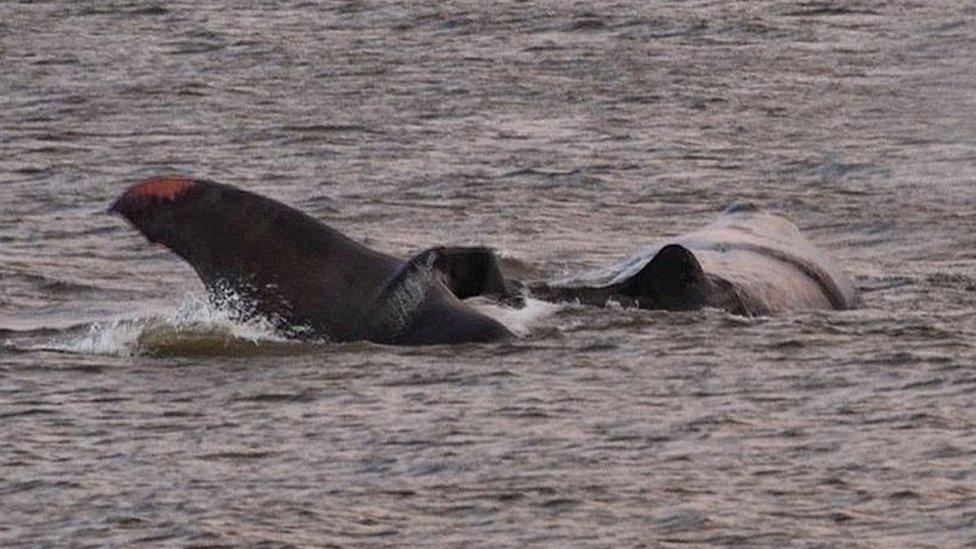Sperm whale stranded on Hunstanton beach dies
- Published
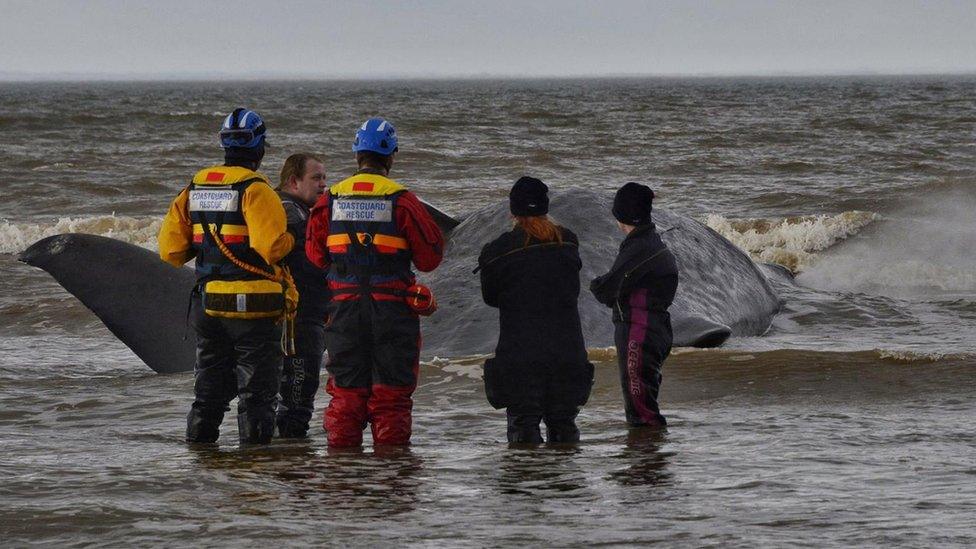
Rescue workers battled to save the whale
A whale found stranded on a Norfolk beach has died, rescue teams have said.
Efforts have been under way to save the sperm whale since the UK Coastguard received a call just after 07:30 GMT. It is thought it became stranded overnight.
The 14m-long (46ft) bull was found between Old Hunstanton and Holme-next-the-Sea, about two miles east of where another sperm whale died on 22 January.
The British Divers Marine Life Rescue said the whale died at about 20:00.
The stranded whale is now surrounded by water
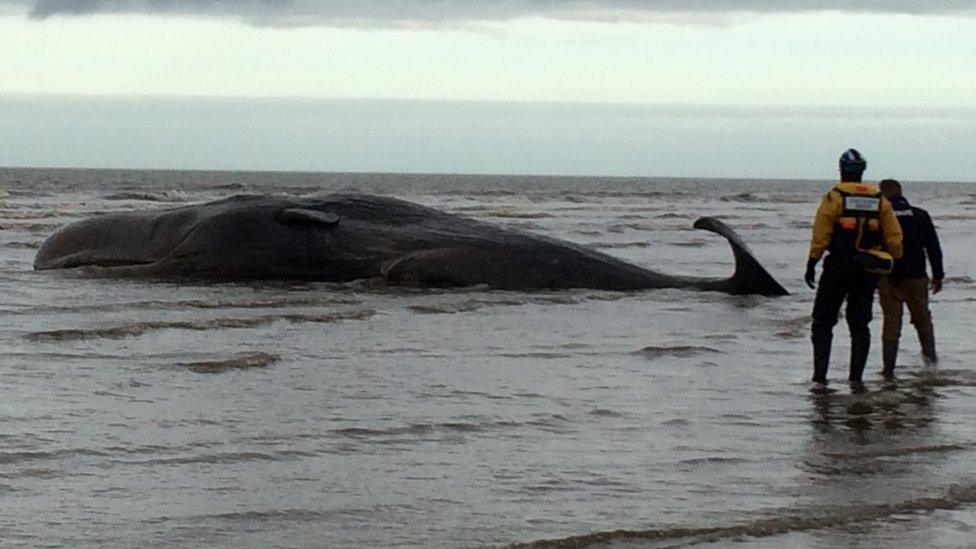
The whale flapped its tail in the water but could not right itself

Rescue workers battled to save the whale
High tide arrived at the beach at 14:50 submerging the whale, but it was unable to right itself.
Kieran Copeland, of Hunstanton Sea Life Sanctuary, who helped in the rescue bid, said earlier that possible internal injuries meant the whale was unlikely to survive and their main focus was on keeping the animal comfortable.
The British Divers Marine Life Rescue said the mammal became stranded at Hunstanton overnight and was the 29th sperm whale to be washed up across Europe in the last few weeks.
Stephen Marsh, operations manager for the group, said there was nothing it could do to help.
"It's likely to be between 25 and 30 tonnes," he said.

Sperm whale strandings - 2016 timeline
12 January: Five sperm whales found on Texel Island, The Netherlands
22 January: Sperm whale stranded at Hunstanton, Norfolk
23-24 January: Three further sperm whales found on the shore near Skegness
25 January: Fifth sperm whale washed ashore at Wainfleet, Lincolnshire
1 February: Eight whales beached at Germany's Wadden Sea national park
2 February: One whale discovered stranded in France
3 February: Further two found in Germany
4 February: Second sperm whale discovered near Hunstanton - the 29th beached across Europe this year, according to experts

Rob Deaville, project manager at the Cetacean Strandings Investigation Programme, said the number of strandings was "unprecedented" in his 20 years' experience.
"We know why the whales have died because they die through the process of live stranding," he said.
"Obviously what has brought them into the North Sea in the first place is a question everyone wants to answer but that will take many weeks to months to try to address."
Sperm whale strandings
300,000
sperm whales in the world
-
29 sperm whales washed ashore across Europe in 2016
-
6 sperm whales beached in Norfolk and Lincolnshire in nearly two weeks
According to Dr Simon Ingram, a marine conservation lecturer at Plymouth University, it is possible the male whales, which normally live off the west coast of Norway, could have taken a wrong turn while heading south to find females or been lured by food.
"At some point probably a group of whales have entered the North Sea," he said.
Why do whales get stranded?
"It's possible that they have turned left too soon," he said.
"They don't know where to go, they're not in familiar habitats.
"They are exhausted, lost and end up on beaches."
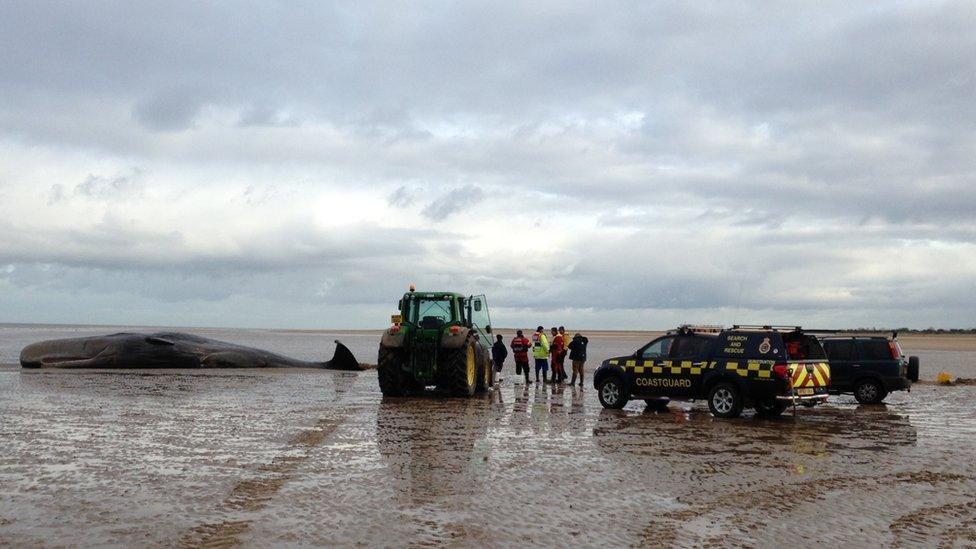
The UK Coastguard was alerted to the beached whale just after 07:30 GMT
The whale became beached about 1.5 miles out on the sand.
Jeremy Littlewood from UK Coastguard said it was the sixth beached whale the agency had dealt with in the area recently.
"It is obviously a very distressing scene and we would advise members of the public, for their own safety, to keep at a safe distance," he said.
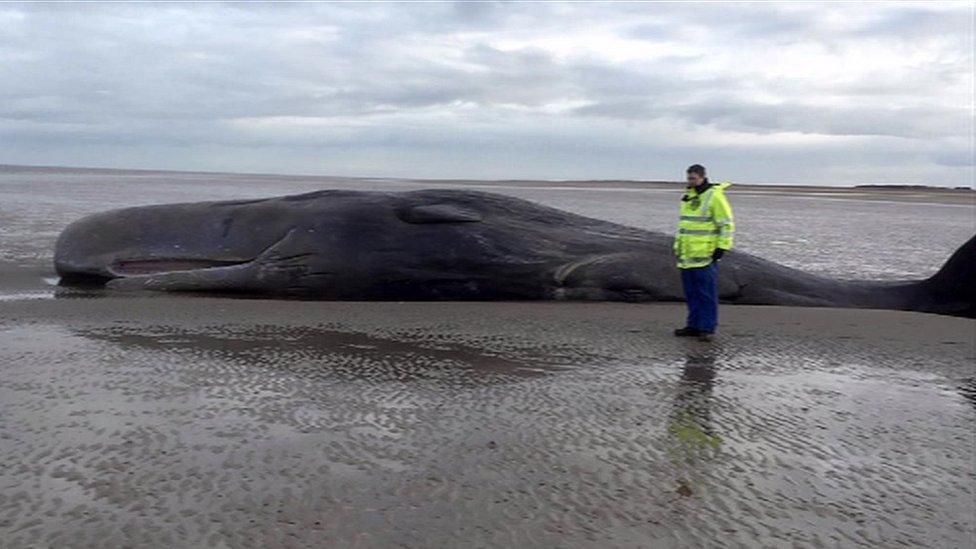
The Maritime and Coastguard Agency asked people to keep at a safe distance from the whale


Nature broadcaster Ben Garrod has been at the scene and said the stranding was a "naturally occurring event"
Expert analysis: Ben Garrod, broadcaster and Anglia Ruskin University lecturer
It is always tragic to see something like this, but it does seem like it is a naturally occurring event.
It is a massive pod and they have washed up in Germany, the Netherlands and the UK.
The ones that have been dissected from mainland Europe have had very, very empty stomachs.
They are exhausted anyway and they come into these very shallow waters in the Wash and by the time they start to beach themselves they are in a cardio-vascular collapse.
By the time they start to wash up, they are in big trouble anyway.
This represents the largest sperm whale stranding episode in England in the last hundred years.

Five other sperm whales became stranded and died on beaches in Skegness, Lincolnshire, and Hunstanton last month.
The Receiver of Wreck and the Zoological Society of London have been informed of the stranding.
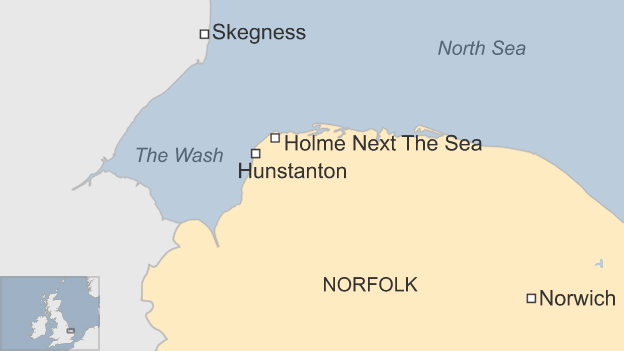
The second sperm whale to be washed up in Norfolk has been beached between Hunstanton and Holme
- Published3 February 2016
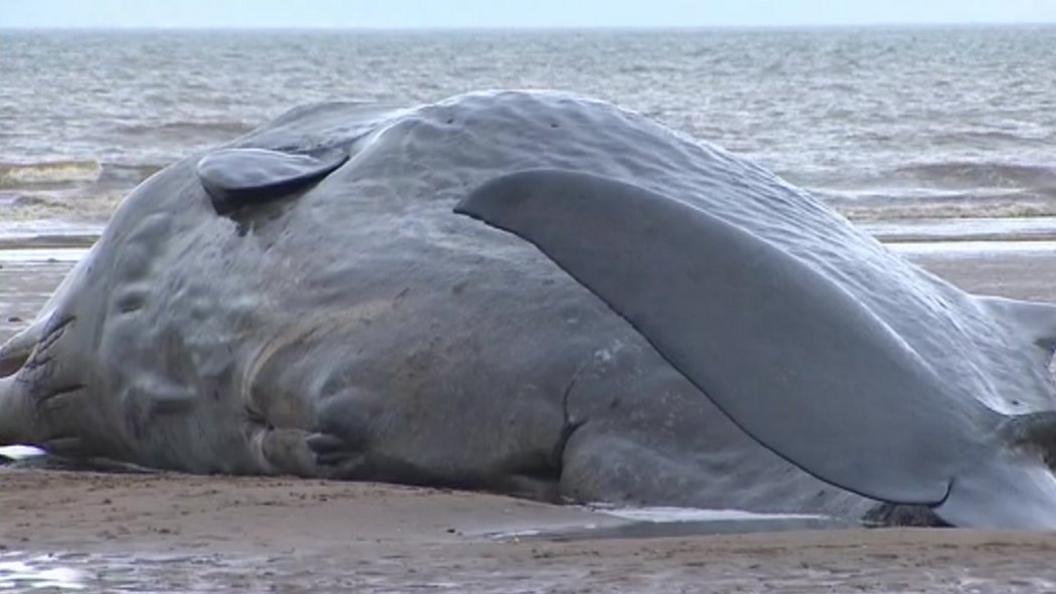
- Published2 February 2016
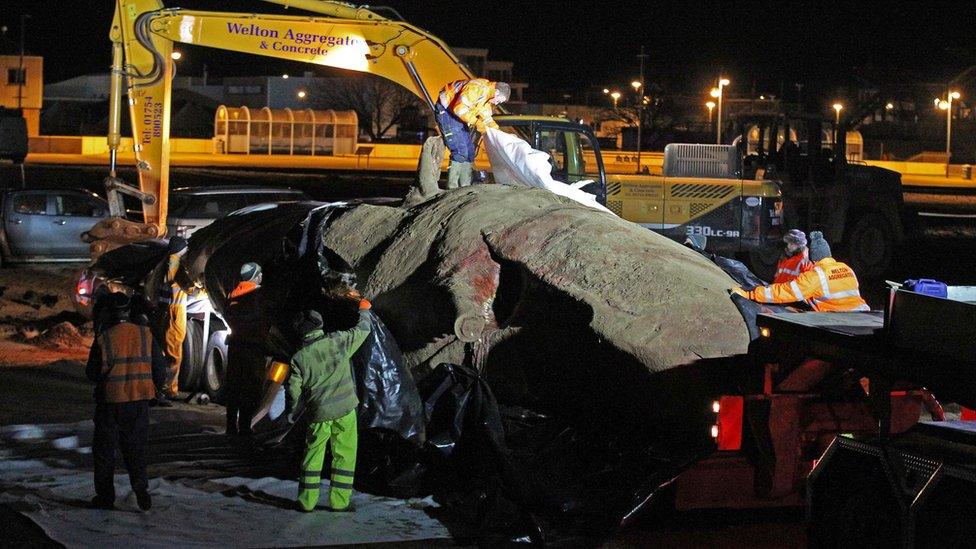
- Published26 January 2016
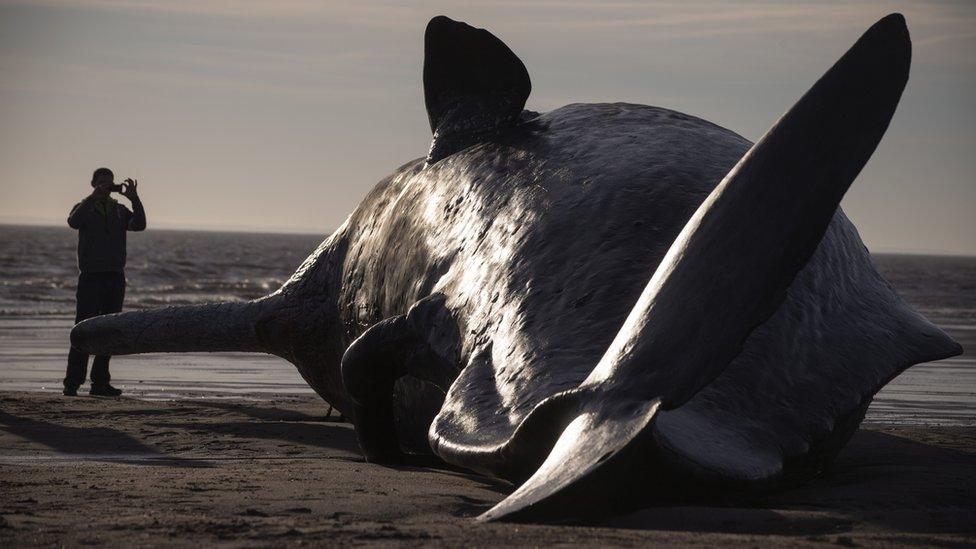
- Published25 January 2016
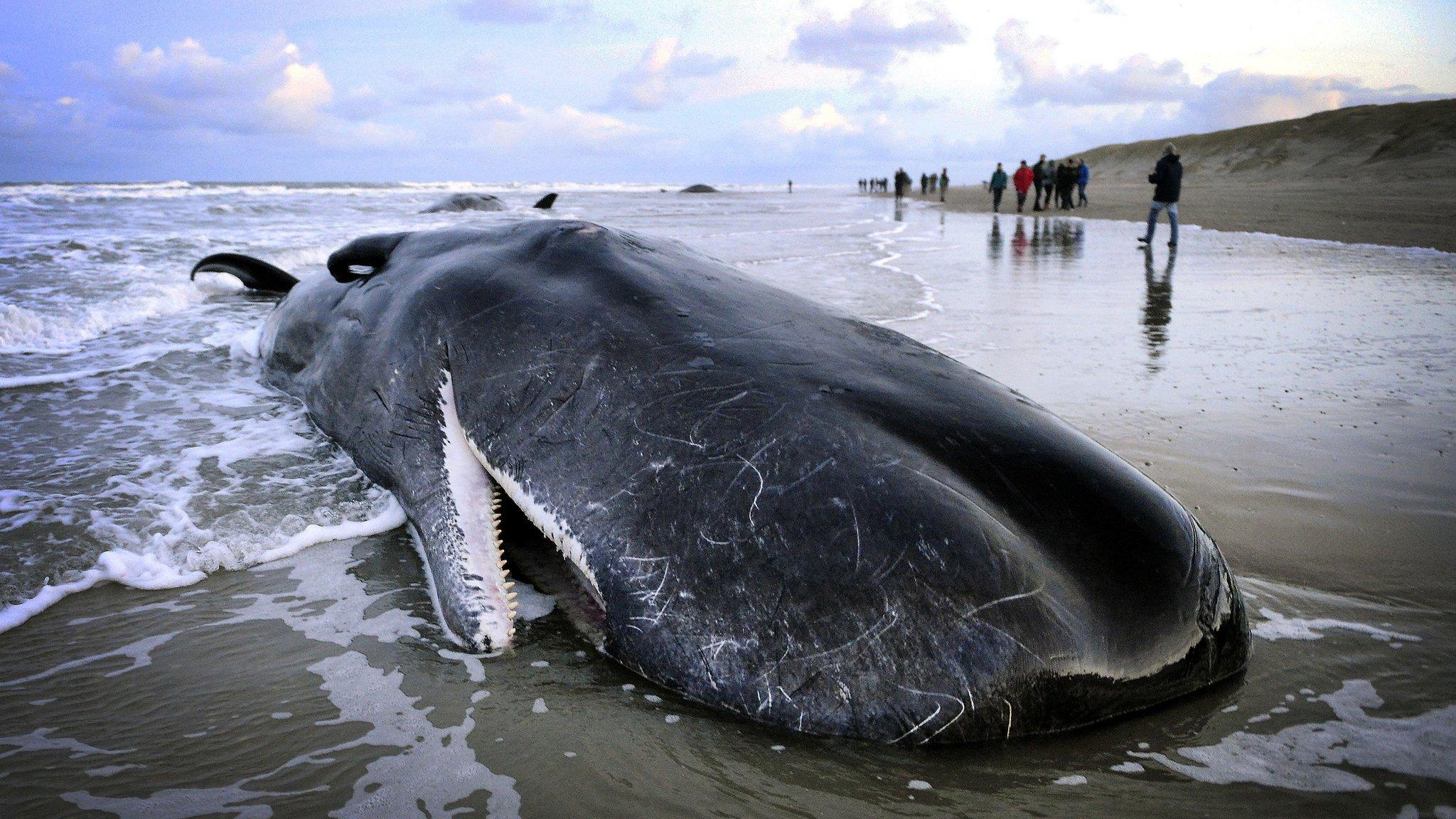
- Published25 January 2016
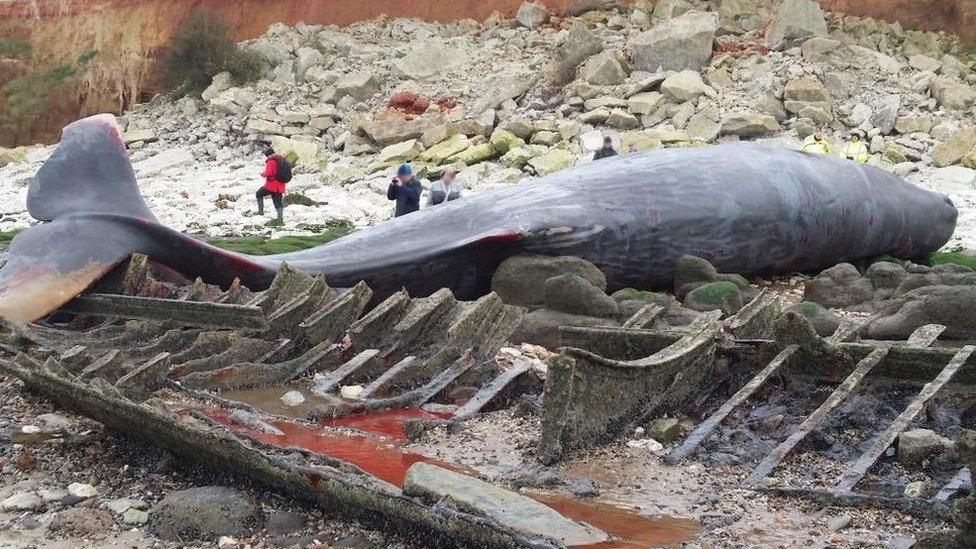
- Published25 January 2016
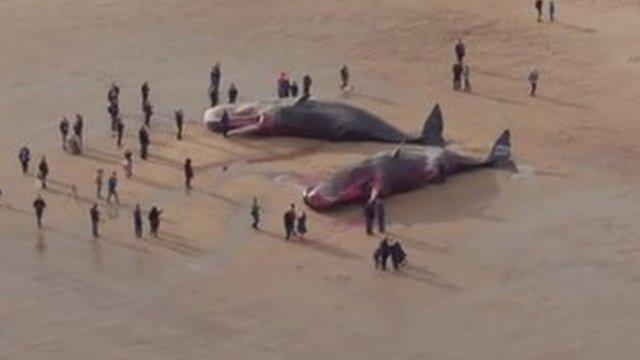
- Published22 January 2016
